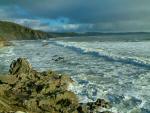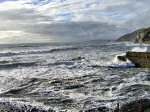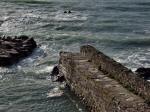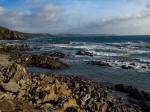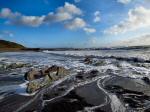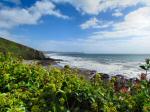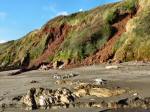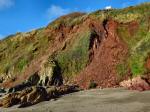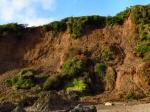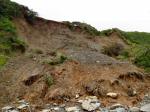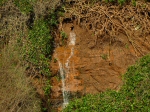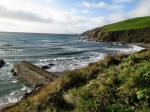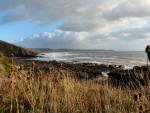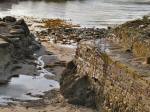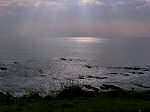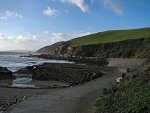| Portwrinkle today appears to be a modern village relying
on the tourist trade and a home for those wishing to live by the sea.
There are no shops, pub or post office, the nearest being in Crafthole,
a few minutes walk up a steep hill away. There is a hotel, the Whitsand
Bay Hotel, a cafe and a nearby golf course plus two beaches – Harbour
beach and Finnygook Beach. Portwrinkle owes its existence to the pilchard
fishing industry and you can still see the remains of the pilchard processing
plant built in the early 1600’s when the local landowners, the Carew
family of Antony, granted a lease to Oliver Walleys of Sheviock parish
for the plant. The small harbour was built just after the pilchard processing
facilities as a joint endeavour between the Carew family and the inhabitants
of Sheviock parish. A look-out would spot the shoals of pilchard from
the hill above and guide the boats into the shoal by semaphore. The catch
would then be landed and pressed in the pilchard cellars before being
salted. The processed fish would be boxed and sent off for sale often
being exported to the Mediterranean countries. The pilchard oil which
was produced as a by-product of this process was also an important commodity.
In the mid 19th century the pilchard fisheries began to decline and local
fisherman formed a co-operative called "The Poor Man's Endeavour
and bought the fishery from the landowner. The pilchard industry continued
to decline and the pilchard cellars fell into disuse by the early part
of the 20th century. However they were briefly re-used as a home for soldiers
for a short time before they were sent to France to fight in World War
I. The remains have now been converted into modern apartments. Smuggling
was a popular activity along this coastline and the old coastguard boathouse
and the cottages which housed the men and their families can still be
seen. |
